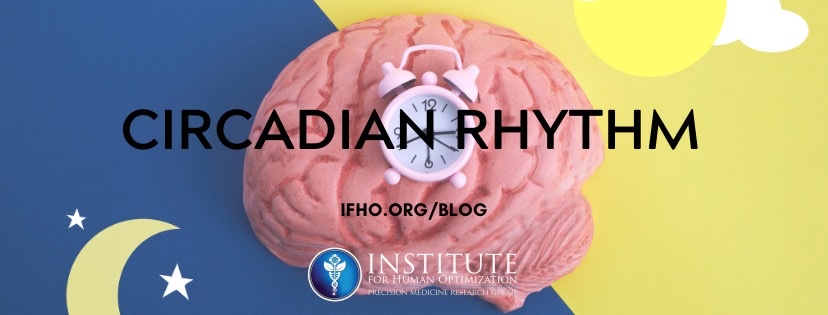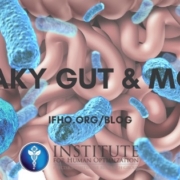Circadian Rhythm: How This Pattern Can Impact Your Health
Did you know that your body has its own internal clock? This “circadian rhythm” is responsible for regulating many different bodily functions, and can play a big role in your overall health. The start of Daylight-Saving Time this month is a good reminder to talk about circadian rhythm—the internal clock that governs our sleep-wake cycles. Most of us are familiar with the yearly ritual of setting our clocks ahead one hour, but do you know what circadian rhythm is and why it’s important? Understanding your own circadian rhythm and how to work with it can be an important part of maintaining good health. In this blog post, we’ll discuss what circadian rhythm is, how it works, and some ways that you can optimize your own rhythm to improve your health. Stay tuned!
Circadian rhythm is a natural, physiological process that regulates many different bodily functions. It is controlled by a part of the brain called the suprachiasmatic nucleus (SCN), which responds to light and dark signals. These signals help to synchronize our body’s clocks with the 24-hour day-night cycle.
The circadian rhythm has a huge impact on our health. It can affect everything from our energy levels to our sleep quality. How rhythmic or not your circadian rhythm is can have wide-ranging effects on your health, including but not limited to the following:
Heart Health
Key functions of cardiovascular health work on a circadian rhythm[i]. When there is a disruption to our circadian rhythm, it can increase our risk for a whole host of cardiovascular problems. Heart attack, stroke, high blood pressure and irregular heartbeat have all been linked to circadian rhythm disruption. A 2019 research study found a higher risk of heart attack after both time changes, but particularly during daylight saving. It is believed that the sudden shift in light and dark can confuse the SCN and cause it to send mixed signals to the heart.
Metabolism
The body’s metabolic rate is also tied to its circadian rhythm. When the rhythm is disrupted, it can lead to weight gain, insulin resistance and other metabolic problems. People who have a more regular circadian rhythm are more likely to have a healthy weight, while those with disrupted rhythms are more prone to obesity and metabolic disorders. Metabolic homeostasis, the body’s ability to maintain a healthy weight, is regulated by the circadian rhythm.[ii]
Sleep
The quality of our sleep is also closely tied to our circadian rhythm[iii]. The more regular and in sync our rhythm is, the better our sleep tends to be. People with disrupted circadian rhythms often suffer from insomnia, restless leg syndrome and other sleep problems. Poor sleep at the systems level can lead to a number of health problems, including obesity, diabetes and heart disease. There are specific disorders with known links to the central clock. These are known as circadian rhythm sleep disorders (CRSDs) and include:
Delayed Sleep Phase Disorder (DSPS): People with this disorder have a hard time falling asleep and waking up at conventional times. They tend to go to bed late and wake up later than most people.
Advanced Sleep Phase Disorder (ASPD): People with this disorder fall asleep early and wake up very early, often before sunrise.
Irregular Sleep-Wake Syndrome (ISWS): People with this disorder have no real pattern to their sleep and wake times.
Jet Lag: This is a temporary disruption of the circadian rhythm that can occur when traveling across time zones.
Shift Work Disorder: People who work at night or rotate shifts often have trouble adjusting their circadian rhythm to the new schedule.
Irregular Sleep-Wake Syndrome (ISWS): People with this disorder have no real pattern to their sleep and wake times.
Cancer
While the link between circadian rhythm and cancer is still being studied, there is some evidence that circadian rhythm disruption can increase the risk of cance[iv]r. One study showed that women who worked night shifts had a higher risk of breast cancer.[v] Another study found that people who slept fewer than six hours per night were more likely to develop colon cancer.[vi] More research is needed to determine the precise link between circadian rhythm and cancer, but the preliminary evidence is suggestive.
Blood-Sugar Regulation
The circadian rhythm also regulates blood sugar levels[vii]. When the rhythm is disrupted, it can lead to insulin resistance and type 2 diabetes. Studies have shown that people with regular circadian rhythms are less likely to develop type 2 diabetes, while those with disrupted rhythms are more prone to the disease.
Asthma
Asthma is the result inflammation in the airways, which makes it difficult for you breathe. In terms of circadian rhythm, asthma follows a “diurnal pattern” which refers to the regular daily fluctuations in symptoms. Asthma typically worsens during the day and is better at night. Research has shown that the disease path of asthma is closely linked to the circadian rhythm of certain inflammatory pathways.[viii]
Hormone Regulation
The circadian rhythm also regulates many hormones, including cortisol and melatonin. When the rhythm is disrupted, it can lead to hormone imbalance and a number of health problems. For example, people with disrupted circadian rhythms often have difficulty regulating their stress levels, which can lead to anxiety and depression. Melatonin is a hormone that helps regulate sleep-wake cycles. When the rhythm is disrupted, it can lead to problems with sleep and insomnia.
OPTIMIZING YOUR CIRCADIAN RHYTHM
There are many ways to optimize your circadian rhythm and improve your health. Some tips include:
Daytime Light Exposure
Getting plenty of natural sunlight during the day is essential for keeping your circadian rhythm in check. Sunlight helps to synchronize the SCN and keep it aligned with the external environment. Make sure to get outside for at least a few minutes each day, even if it’s just to take a quick walk.
Blocking Light at Night
If you’re unable to get outside during the day, try to avoid exposure to artificial light at night. Blue light, in particular, can disrupt your circadian rhythm. Make sure to use blackout curtains or eye shades especially if you need to sleep in a room that has artificial light.
Staying on a Regular Schedule
Keeping a regular sleep schedule is one of the most important things you can do to optimize your circadian rhythm. Try to go to bed and wake up at the same time each day, even on weekends.
Eating a Healthy Diet
A healthy diet is also essential for keeping your circadian rhythm in check. Eat plenty of fruits and vegetables and make sure to get enough protein and healthy fats. Avoid eating processed foods and sugary snacks, which can disrupt your rhythm.
Exercising Regularly
There is an old saying that couldn’t be truer: “A tired dog is a good dog.” Exercise is crucial for keeping your circadian rhythm in balance. Make sure to get at least 30 minutes of exercise each day, and try to do it at the same time each day whenever possible.
Managing Stress
Finally, managing stress is essential for keeping your circadian rhythm in check. When you’re stressed out, it can throw off your rhythm and lead to a host of health problems. Make sure to practice relaxation techniques such as yoga, meditation, and deep breathing exercises on a regular basis.
Caffeine Intake
Caffeine is a stimulant that can also disrupt your circadian rhythm. Try to avoid drinking caffeinated beverages late in the day, and try not to drink them at all if you’re struggling to get to bed.
CONCLUSION
The circadian rhythm is one of the most important patterns in your life and it has a significant impact on your health. By understanding how this pattern works, you can make small changes to improve your well-being. We hope that this week’s blog post has helped increase your knowledge about circadian rhythms and their importance. Be sure to follow us next week for another informative blog post!
[i] https://pubmed.ncbi.nlm.nih.gov/21641838/
[ii] https://www.ncbi.nlm.nih.gov/pmc/articles/PMC3781773/
[iii] https://www.nigms.nih.gov/education/fact-sheets/Pages/circadian-rhythms.aspx
[iv] https://www.ncbi.nlm.nih.gov/pmc/articles/PMC7120250/
[v] https://www.ncbi.nlm.nih.gov/pmc/articles/PMC7013618/
[vi] https://sleepeducation.org/short-sleep-adds-colon-cancer-risk/#:~:text=A%20new%20study%20shows%20sleeping,a%20precursor%20to%20cancer%20tumors.
[vii] https://med.stanford.edu/news/all-news/2009/10/bodys-circadian-rhythm-tightly-entwined-with-blood-sugar-control.html#:~:text=But%20what%20sets%20that%20circadian,mechanism%20for%20regulating%20blood%20sugar.
[viii] https://hms.harvard.edu/news/circadian-rhythm-asthma








 IfHO
IfHO



Leave a Reply
Want to join the discussion?Feel free to contribute!